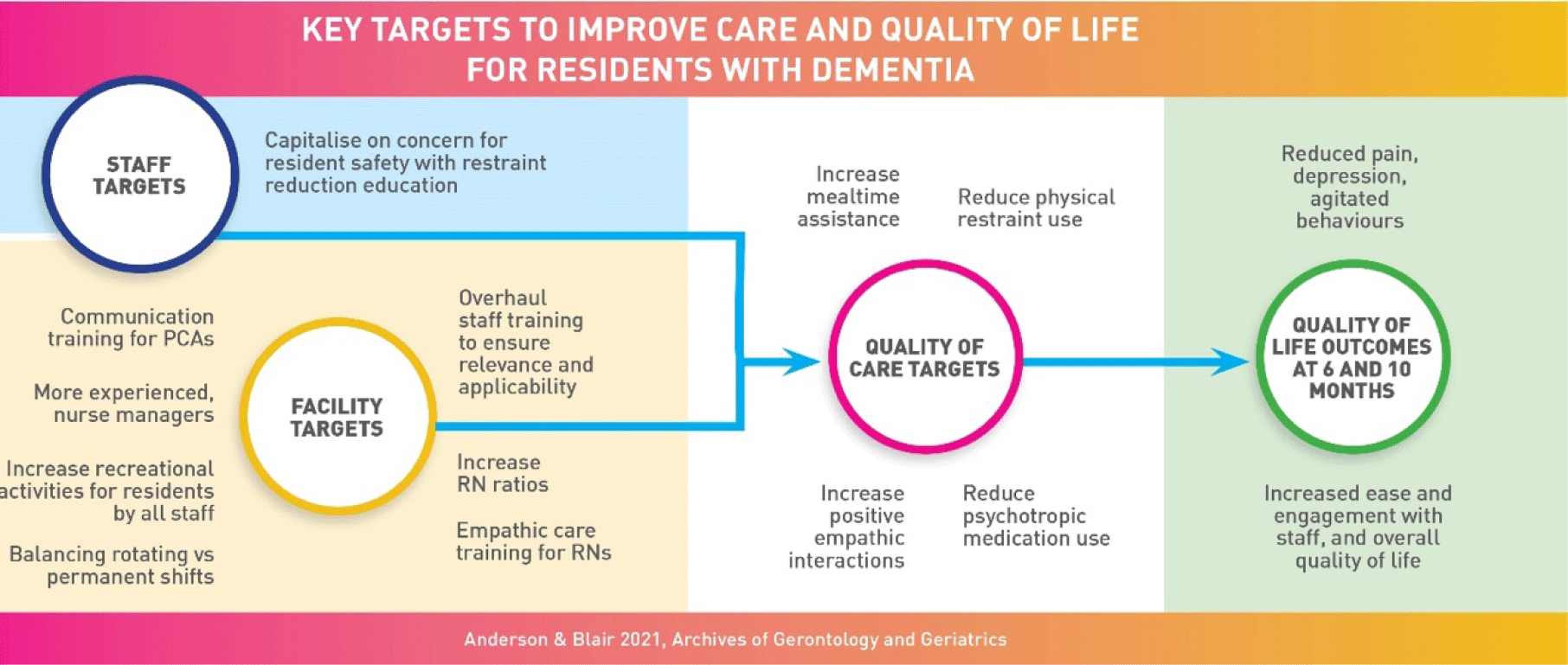No CrossRef data available.
Published online by Cambridge University Press: 02 February 2024
Despite the integral role long term residential care staff play in the lives of residents with dementia, the mechanisms for supporting staff to bring about good quality of care (QOC) and quality of life (QOL) are poorly understood. This study focused on establishing the key mechanisms to improve QOC and in turn QOL of residents with dementia.
Over a 10-month period we followed: 247 older adults with dementia from 12 not-for-profit residential care facilities, their families/care partners (n=225), managers (n=12) and staff (n=232). Facilities ranged in size from 10 to 137 beds, located across remote, rural and metropolitan areas of south eastern Australia. Measures included: staff surveys, family member and resident interviews, resident file audits, live resident and staff observations and organisational audits. Multilevel Modelling or Generalised Estimating Equations analyses were conducted for each of the 12 QOC variables, with 22 staff and control variables as the predictors, and for each of the 11 QOL variables, with 20 QOC and control variables as predictors.
Analyses established significant associations between a large number of staff and QOC variables and between QOC and QOL variables.
The quality of the care provided to residents has strong, widespread influences on the QOL of residents. The most promising areas for intervening with staff were: increasing the relevance and applicability of staff training and qualifications, upskilling staff in empathic care provision, communication, and restraint reduction, using a mixture of permanent and rotating shifts, prioritising recreational activity provision by all staff and increasing assistance with meals. patients with cognitive impairment in rural hospitals.
